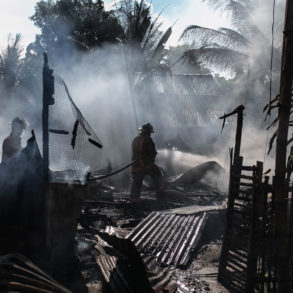A team of experts from the University of Ostrava and Masaryk University in Brno published their annual evaluation of the Rapid Re-Housing pilot project, in which 50 Brno families participated. According to the study, the project saved more than CZK 1.5 million for the City of Brno. Photo credit: Casadei Graphics.
Brno, Jan 4 (BD) – “I have been doing different temporary jobs until now, but now I feel I can get into normal full-time work. I still have debts and various problems, but the crucial thing – housing – is not missing now. And what’s important is that my daughter is now the happiest I’ve ever known her, she is always commended at school, and this gives me tremendous strength,” one of the clients, Mrs. Zuzana, describes her experience with the project.
The program is designed for people requiring intensive social support to be escape homelessness. After one year in the program, 48 out of the 50 randomly selected families in housing distress (96%) were able to maintain their rented apartments with the support provided. These fifty families spent an average of 11.8 months of that year in normal housing, compared with the control sample of families, who spent only 2.7 months in rental housing.
A cost-benefit analysis, examining the cost-to-savings ratio of the project, showed that the costs to the city budget were reduced by an average of CZK 31,000 per family per year, corresponding to a total saving of CZK 1.5 million across all 50 families. One of the main benefits of the project was that the children were able to avoid a total of 3,984 days in institutional and foster care.
The cost of the project was CZK 10 million. 95% of this amount was paid from the European Structural Fund; the amount provided by co-financing from the city was less than CZK 150,000.
The goal of the project was to test whether homelessness among families with children could be ended by providing housing and flexible support from social services, and whether this solution would be sustainable: “We do not know that yet, at the moment. The analysis shows that the idea of the project is working. It has been co-financed from the city budget, and if it is supposed to continue, we will also need to supply additional funding and staff. In addition, the rehousing was not without operational complications and problems. For these reasons, we will only be deciding whether and how to support the project in the future. Anyway, we now have valuable information that we will certainly use in making any further decisions,” said Robert Kerndl, Deputy Mayor of the City of Brno for Social Affairs.
Get the news first! Sign up for free to our daily newsletter here. Top stories of the day in your mailbox every morning.








